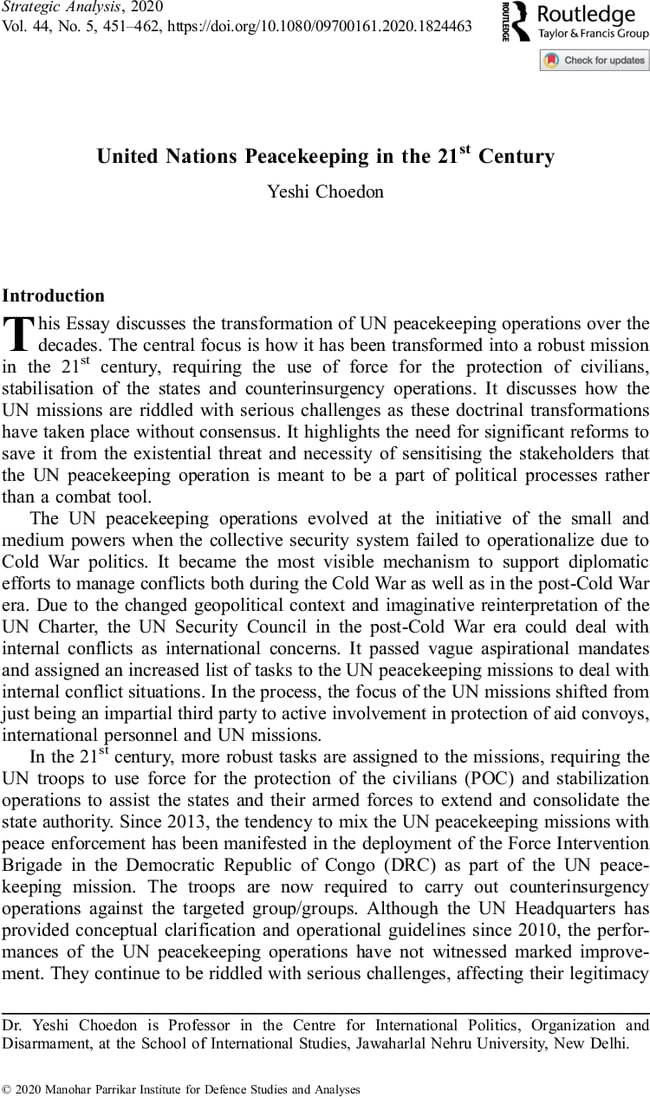Brigadier (Dr) M. P. Singh (Retd), Political Leadership and Indian Armed Forces in Diplomacy and War
Book review
Brigadier (Dr) M. P. Singh (Retd), Political Leadership and Indian Armed Forces in Diplomacy and War, Greenfields Publishers, Dehradun, 2019, 351 pp., Rs.1,095.00 (hardcover), ISBN 9789381089392
- Satyavrat Pagay |
- November 2020 |
- Strategic Analysis






